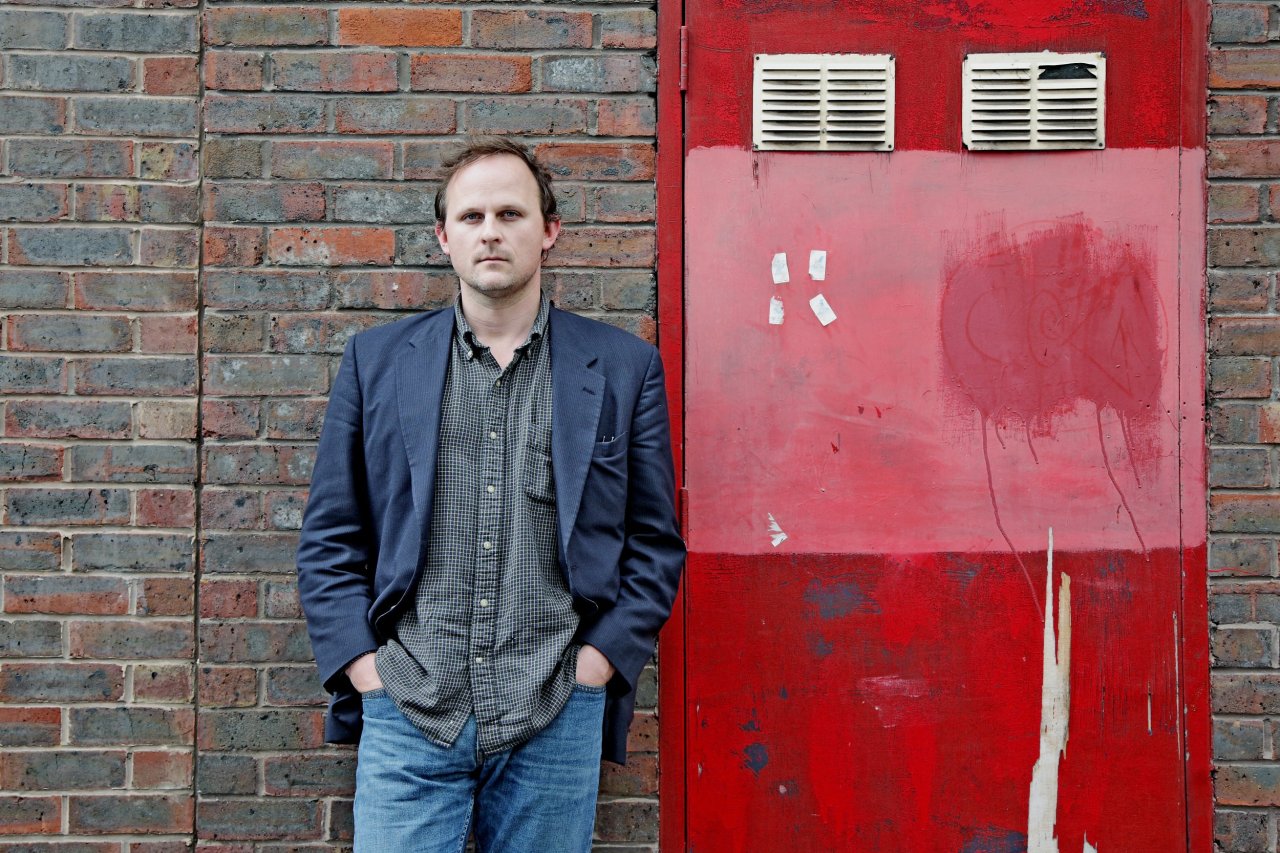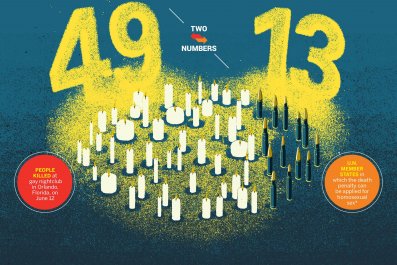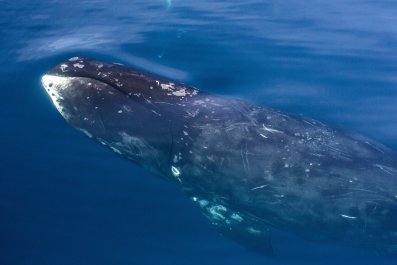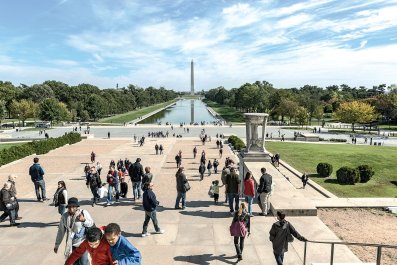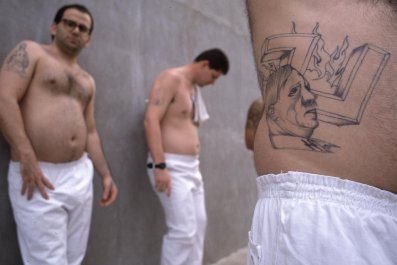In 2006, The New York Times's short-lived sports magazine, Play, sent David Foster Wallace to Wimbeldon. His assignment was to cover Roger Federer, the virtuosic three-time defending champion of tennis's most prestigious event. Though Wallace was able to finagle only 20 minutes with his subject, he turned in a dazzling meditation on the nature of Federer's kinetic genius and its context within the evolution of the sport. "Federer as Religious Experience," as it was titled in Play, is considered by many to be the greatest piece of tennis journalism ever written.
But what has become one of the most celebrated essays from one of the most celebrated writers of the past quarter-century almost never happened. Wallace initially turned down Play's offer, after which the magazine turned to GQ's John Jeremiah Sullivan. "It was an easy answer when Play called saying they had access to Federer at Wimbledon," Sullivan wrote in a 2011 review of The Pale King, Wallace's posthumous quasi-novel. "GQ wouldn't let me do it, though. Turns out I'd signed something my agent described as a 'contract' that forbade me from writing for other mags." At Sullivan's behest, Play turned back to Wallace, who ultimately agreed to take the assignment.
Sullivan is able to note the "complicated feelings" he experienced in relation to Wallace's piece while still acknowledging its greatness and how Wallace made his point "with an accuracy and effortlessness that I knew I wouldn't have achieved or seen as possible." Nevertheless, Sullivan didn't even consider it Wallace's best piece of writing on the subject, much less the greatest of all time. That honor went to his 1996 Esquire story about middling tennis pro Michael Joyce and the sport's fringe professionals. Sullivan described the Federer essay that Play would publish 10 years later as "justly praised but disproportionately famous."
Whether you agree with Sullivan may depend on whether you have considered Wallace's tennis writing as a body of work unto itself. Readers are well aware of his relationship with the sport; it appeared consistently in both his fiction and nonfiction. But because the scope of Wallace's vision was so magnificent, it's unlikely that many have thought of the ways in which the ball bounced from tennis piece to tennis piece and how they charted his evolution as a writer.
For anyone who is interested, the Library of America put together a collection of Wallace's five pieces of nonfiction on the subject—from 1992's "Derivative Sport in Tornado Alley," an analytical essay about his days as a junior player in windswept Illinois, to "Federer as Religious Experience," the last magazine piece he ever wrote. Titled String Theory, after his piece on Joyce, the handsome, 138-page book was published this week. Its introduction was written by none other than Sullivan.
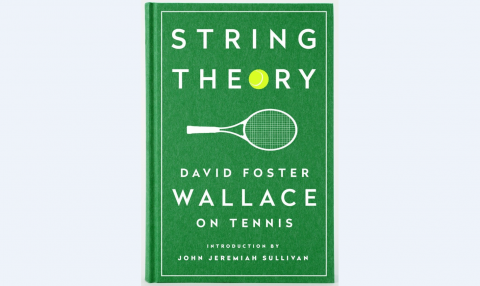
"For me, the effect of gathering Wallace's tennis-themed nonfiction under one cover is a bit like assembling a mirror, one of those segmented mirrors they build and position in space, only this one is pointed at a writer's mind," Sullivan writes.
Newsweek recently caught up with Sullivan to talk about the power of Wallace's writing, how the tastes of his readers can change and why it's probably best that he isn't around to witness Donald Trump.
In your review of The Pale King, you mention first reading Infinite Jest when you were 21 or 22. What do you remember about experiencing Wallace's writing for the first time?
I just remember feeling the power, first encountering his work. The way you might feel after you turned on some machine that was a little more powerful than you were ready for. I think that's what [Jonathan] Franzen means when he talks about Wallace as a great rhetorical writer. The prose was operating at such a high level in every sense.
I think that Holy shit! feeling is a common initial reaction to Wallace.
When a writer is putting everything on the line and has decided that literature is necessary to survival in some sense, then you feel it immediately in the prose, and there's no faking it.
There is a sense that something is at stake.
Reading him now is interesting. Our tastes change the same way they do with food. Some of his stuff that I liked earlier in my life now sounds very loud to me, and sort of pyrotechnic. I'm often wishing as I read him that he would quiet down just a little bit and let me lose myself in the story.
But that only applies to some of the work. For instance, when I read The Pale King again, which I've done since I wrote that piece about it, I'm more convinced than ever of what a great book that is—whatever it is; it can't be called a finished novel. It just contains three of four different long stretches of writing that were beyond anything he had done before. I say that as somebody who knows his work fairly well. I'm not a scholar, but I've read all of it more than once. It's tremendous, some of the stuff he was achieving there.
When you say certain things seem loud now, do you think that's solely your own taste changing? Or do you feel like some of his pieces have aged differently from others, in general, and that maybe culture's taste has changed as far as how receptive readers are to a writer like Wallace?
I think that's a really intelligent question, but it's also impossible to answer because it assumes that there is some fixed point of judgment that we can steer by and the rest of it will somehow make sense in the light of that. Really, it's a bunch of relative factors all playing off of one another. There's the way our tastes evolve as readers over our lives. There are some books that sort of belong to young people, you know? And to people who have more of a tolerance for writing that is deeply concerned with writerly preoccupations in a way that hasn't yet learned how to efface itself. It's also that his own work changed. That's what I mean about The Pale King. His own work evolved. There are different periods.
"If you want to write great fiction, if you want to write ambitious fiction, one of the braveries involved in that is that all of your weaknesses and bad habits are going to be on display."
When I read [William] Faulkner…there was a great New Yorker critic, Clifton Fadiman, who hated Faulkner. I remember for this introduction I had to write one time, I read all of this guy's negative criticism about Faulkner, and I remember thinking that it was all kind of right. It was all kind of correct. He called Absalom, Absalom! "the most consistently boring novel by a reputable writer to come my way during the last decade." I remember reading him and thinking he was totally right about all this stuff. He got all of Faulkner's weaknesses.
But somehow Faulkner's greatness wasn't touched by it. It was more the case that if you want to write great fiction, if you want to write ambitious fiction, one of the braveries involved in that is that all of your weaknesses and bad habits are going to be on display. Almost nobody is without them. So that's how I feel about that stuff in Wallace. It comes along with his gifts. It was part of his personality to me. He was obsessively analytical to a degree that a lot of people considered tedious.
Did you realize anything or discover anything new about Wallace as you went through all of his tennis writing at once?
The thing that struck me first off was how much of it there was. It was just something I had never really paused to think about. I had never thought of him as a tennis writer, per se. Obviously, he was too many things for that to be possible. After Chris [Cardiff] at the Library of America contacted me about it, I just sort of made a list for myself on a piece of notepaper all the pieces I could think of. I started thinking about the fact that this anthology wouldn't even be able to contain the fiction, where tennis is everywhere. I realized just how many pages he had devoted to the subject. It's kind of incredible. It was definitely a preoccupation and I think, for him, a useful, flexible metaphor.
I [did realize something] in one place very distinctly. His piece on Federer, "Federer as Religious Experience." I had never really liked it as much as everyone else. I had always felt like there was something I wasn't getting. I think it was because I loved his piece about Michael Joyce so much, that to me he was rehashing a form that he had done perfectly. So it was good for me to be sent back to it and forced to read it more closely, and one thing that stuck out was how deliberately he was working the metaphor of…I won't say for Federer as himself—it wasn't simplistic or tasteless like that—but he was finding this metaphorical connection between a player who was in Federer's situation and the modern novelist. One is standing in a kind of wind tunnel of speed and spin, and the other is standing in a similar tunnel of information. There was this real, strange kind of empathy there that bounced back and forth between Wallace and Federer in that piece. I saw that in a way I hadn't seen it on the first reading.
It's interesting to think about if he was aware he may have been equating himself to Federer, or if part of him was aware of it and another part him was trying not to acknowledge that he was doing it.
I know what you mean. We talk a lot about intention. The more I do it, the more I've found that the decisions also come down to what are you going to leave in. You're doing the writing in more or less a trance state. Things happen in that state, and things get revealed. Some of them can be kind of embarrassing. Then you face this decision of whether or not to leave them in. It's both unconscious and conscious.
It struck me how differently the Federer piece read after reading all of the other tennis writing first. A lot of the stuff about the evolution of tennis and some of the ways he described the game came across as redundant because he'd done similar things in the Michael Joyce piece or wherever else.
You see that he had already done so much interesting work on the subject before he ever turns to that Federer piece. You wouldn't think he'd have anything left for it, but he did find interesting things to say even there. It's funny. You can see the tone there has changed in a way that mirrors the change in the fiction. If you look at the difference between the Michael Joyce piece and the Federer piece, it tracks pretty well with the difference between Infinite Jest and the best writing in The Pale King. It's a little more rounded out.
His stature was also so much greater when the Federer piece came out, and Federer is a superstar athlete that people are going to actually want to read about independently of Wallace. That piece allowed way more people to experience how he thinks about tennis.
You're right. It was happening on a larger stage. But that can be a funny thing for a writer. You start to wonder who is your audience. You can wind up in a situation where your subject is new for your wider readership, but your friends and your loyal readers are saying to you, "Why do you keep writing about this?"
How would you describe his standing in the magazine journalism community around the time he wrote the Federer piece?
His stature by that time was so high in all of the forms he was working in—literary essays, magazine pieces, fiction—that when he would appear in magazines you had this beautiful sense of something having been captured, almost like a bird.
How did the fact that you potentially could have written the Federer piece affect your relationship with it?
That's probably another reason why it was refreshing, and in some ways revelatory, to read it again after some years had gone by. I don't even really remember that stuff. It was all just publishing politics. But probably I did feel a little bit of professional jealousy. In a way, it's the experience I'm hoping people will have with this book. Setting these pieces aside the way they've done and putting them under one really interesting cover. You can read them in a quieter space.
Is there anything in particular that's happened since Wallace's death that has made you wish he was still around to comment on it?
More than once I've thought "lucky you" for not having had to have witnessed this. Especially lately.
Yeah, maybe it's for the best that he didn't have to consider Trump and this election.
The things that are happening with Trump are so in his wheelhouse that I almost wonder if it he wouldn't have been overwhelmed and short-circuited.



